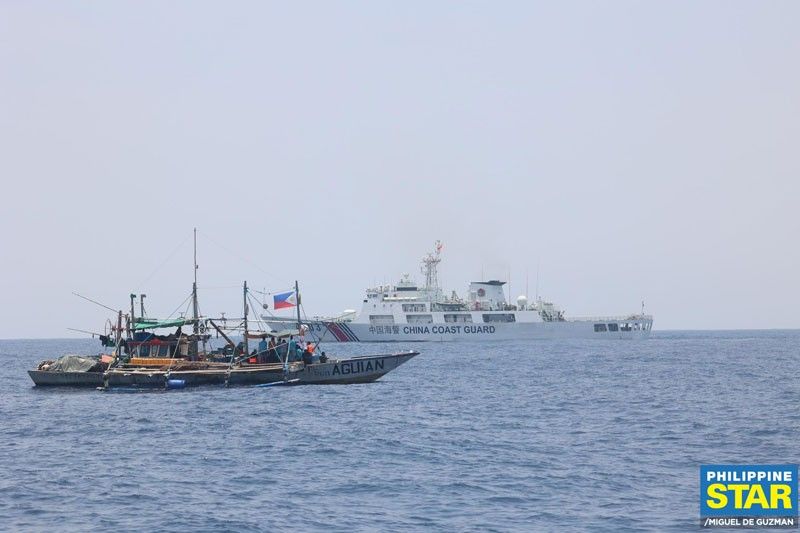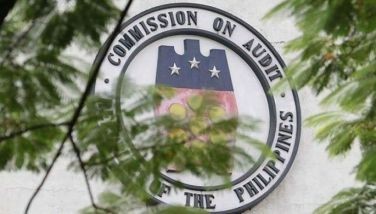China Coast Guard empowered to detain South China ‘trespassers’

Philippine ignores ‘empty threat’
MANILA, Philippines — China is now looking at detaining for 60 days without trial suspected violators of its exit and entry laws covering what it considers its territorial waters, including almost the entire South China Sea.
The new rules, which Beijing intends to enforce by June 15, were made public yesterday following the success of the Atin Ito Coalition’s civilian peace and solidarity resupply mission to Panatag (Scarborough) Shoal in the West Philippine Sea (WPS).
The Philippine Coast Guard (PCG), meanwhile, said such a statement “should be ignored.”
The China Coast Guard (CCG) is likely to lead the enforcement of what Beijing refers to as “maritime administrative law.”
Interestingly, the new rules were deliberated and adopted on May 15, the same day that Atin Ito’s civilian mission to Panatag Shoal of the WPS officially began its trip.
Article 257 of the new directives pertaining to “foreigners suspected of violating entry and exit control” states that the CCG may detain persons while investigating for as long as two months.
“In any of the following circumstances, if the suspicion cannot be ruled out after on-the-spot interrogation or continued interrogation and further investigation is required, the person may be detained for review with the approval of the person in charge of the coast guard agency,” the new rules read.
Covered by the new rules are those suspected of illegal entry and exit, suspected of assisting others to illegally exit and enter the country, those suspected of illegal residence or illegal employment or of endangering national security and interests, as well as those disrupting social and public order or engaging in other illegal and criminal activities.
“The period of detention review shall not exceed 30 days. If the case is complicated, it can be extended to 60 days with approval from the police agency. For those whose nationality and identity are unknown, the detention review period shall be calculated from the date when their nationality and identity are ascertained,” the new rules state.
“If it is decided that the detention review period needs to be extended, it may be approved by the coast guard agency that made the decision,” according to the new rules.
The Chinese embassy has yet to respond to media request for comment.
On Thursday, Chinese foreign ministry spokesperson Wang Wenbin again warned the Philippines against alleged infringements and provocations.
“If the Philippines does not change course, China will take necessary measures to firmly defend our legitimate rights and interests,” Wang said.
PCG: Ignore it
Reacting to China’s new rules, PCG Commodore Jay Tarriela said nobody can stop Filipinos, particularly fishermen, from venturing into the West Philippine Sea.
“This kind of statement from China should be ignored,” Tarriela said in an interview with “Storycon” on One News on Friday.
“This kind of enacted domestic law of People’s Republic of China is basically illegal… Our fishermen should not be prevented from going to the West Philippine Sea or even this kind of civil society initiative for convoy,” he added.
Tarriela was referring to the civilian convoy led by the Atin Ito Coalition that sailed to Panatag Shoal this week.
He noted that China’s announcement that it will arrest “trespassers” was made just as the coalition declared that it accomplished its mission in Panatag.
“For my personal take on this, I don’t think they are really serious in implementing this. This is just another psy-ops (psychological operations) to discourage the civil society from the Philippines and other countries (from doing such activities),” he added in a mix of English and Filipino.
“This is just a way for us to discourage the civil society from having a civilian convoy,” he added.
Tarriela said it will create more problems for China if it decides to implement the said policy, noting that it will also have to arrest fishermen from countries that have claims in the region, including Vietnam, Malaysia, Indonesia and Taiwan.
The policy, he said, was announced to “intimidate” civil society from different countries conducting similar activities like the Atin Ito Coalition.
“It’s a very big problem for them if they cannot control the civil society in different countries that will go against and challenge their nine-dash lane,” he added.
Tarriela said they have not received specific instructions from the NTS-WPS on how to respond to China’s announcemen. — Janvic Mateo, Ghio Ong
- Latest
- Trending
































